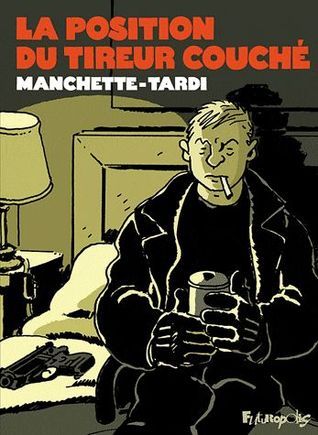
À 20 ans, Martin Terrier était pauvre, esseulé, inculte et crétin. Mais pour changer tout cela, il avait un plan de vie beau comme une ligne droite. À 30 ans, Christian Terrier, tueur à gages, sa dernière mission accomplie, impeccablement ou presque, il décide de se retirer, de congédier sa régulière en cinq minutes, lui faisant cadeau de son chat Soudan, de récupérer son fric bien placé, et de rentrer au pays pour couler des jours tranquilles avec sa promise, en tout cas celle qui lui avait promis de l’attendre… Mais pour se baigner deux fois dans le même fleuve, il faut que beaucoup de sang passe sous les ponts ! Rien ne se déroule donc comme prévu. À commencer par Alice Freux, qui est devenue Madame Schrader.Et puis, Cox, l’Américain, son donneur d’ordres depuis 10 ans, n’accepte pas son départ à la retraite décidé uni latéralement, et entend bien l’obliger à un dernier contrat. Quand il retrouve Faulques, son conseiller financier, pendu, suicidé sous le poids des mauvais placements, les carottes sont cuites pour lui. Alors autant accepter la proposition de Cox, dont il semble de toute façon bien impossible de semer les sbires. Mais ce sera un coup à 150 000 et non plus à 200 000 ; quand on est acculé… Après tout qu’a-t-il encore à perdre ? Sans doute bien plus qu’il ne le pense. Martin Terrier deviendra ce qu’il avait toujours cherché à fuir depuis son enfance, l’ombre de son père, la copie d’un médiocre. Comme toujours Manchette a volontairement choisi une histoire gorgée de référence au polar pour mieux la dynamiter de l’intérieur, et Tardi se régale !
Author

Jean-Patrick Manchette was a French crime novelist credited with reinventing and reinvigorating the genre. He wrote ten short novels in the seventies and early eighties, and is widely recognized as the foremost French crime fiction author of the 1970s - 1980s . His stories are violent, existentialist explorations of the human condition and French society. Manchette was politically to the left and his writing reflects this through his analysis of social positions and culture. His books are reminiscent of the nouvelle vague crime films of Jean-Pierre Melville, employing a similarly cool, existential style on a typically American genre (film noir for Melville and pulp novels for Manchette). Three of his novels have been translated into English. Two were published by San Francisco publisher City Lights Books (3 To Kill [from the French "Le petit bleu de la côte ouest"] and The Prone Gunman [from the French "La Position du tireur couché"]). A third, Fatale, was released by New York Review Books Classics in 2011. Manchette believed he had gone full circle with his last novel, which he conceived as a "closure" of his Noir fiction. In a 1988 letter to a journalist, Manchette said: " After that, as I did not have to belong to any kind of literary school, I entered a very different work area. In seven years, I have not done anything good. I'm still working at it." In 1989, finally having found new territory he wanted to explore, Manchette started writing a new novel, La Princesse du Sang" ("Blood Princess"), an international thriller, which was supposed to be the first book in a new cycle, a series of novels covering five decades from the post-war period to present times. He died from cancer before completing it. Starting in 1996, a year after Manchette's death, several unpublished works were released, showing how very active he was during in the years preceding his death. In 2009, Fantagraphics Books released an English-language version of French cartoonist Jacques Tardi's adaptation of Le petit bleu, under the new English title 'West Coast Blues.' Fantagraphics released a second Tardi adaptation, of "La Position du tireur couché" (under the title "Like a Sniper Lining Up His Shot" ) in the summer of 2011, and has scheduled a third one, of "Ô Dingos! Ô Châteaux!" (under the title "Run Like Crazy Run Like Hell") in summer 2014. Manchette himself was a fan of comics, and his praised translation of Alan Moore's Watchmen into French remains in print.